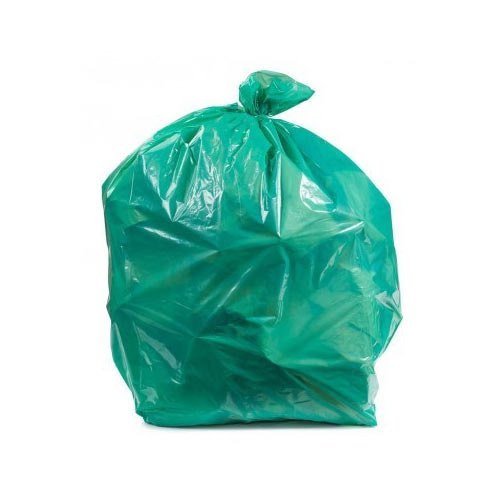Degradable Trash Bags for a Cleaner Environment
Introduction to Degradable Trash Bags
In a world increasingly focused on sustainability, the issue of waste management has come under intense scrutiny. Traditional plastic bags have long been a significant contributor to environmental pollution due to their non-biodegradable nature. However, the emergence of degradable trash bags offers a promising solution to this problem.
Environmental Impact of Traditional Plastic Bags
Degradable trash bags pose a severe threat to the environment. Their production requires the consumption of fossil fuels, leading to greenhouse gas emissions. Moreover, these bags often end up in landfills or oceans, where they can take hundreds of years to decompose fully, releasing harmful toxins into the ecosystem.
What are Degradable Trash Bags?
Degradable trash bags are designed to break down over time, reducing their environmental impact significantly. Unlike conventional plastic bags, which remain intact for centuries, degradable bags are made from materials that can decompose naturally, such as plant-based polymers or biodegradable plastics.
Types of Degradable Materials Used
Biodegradable
Biodegradable trash bags are made from organic materials that can be broken down by microorganisms into natural substances like water, carbon dioxide, and biomass. These bags degrade much faster than traditional plastics, typically within a few years.
Compostable
Compostable trash bags are designed to degrade under specific conditions, typically in industrial composting facilities. These bags break down into nutrient-rich compost, making them an excellent choice for environmentally conscious consumers who compost their organic waste.
Benefits of Using Degradable Trash Bags
- Reduced Environmental Impact: Degradable bags break down much faster than traditional plastics, reducing the amount of waste that ends up in landfills or oceans.
- Renewable Resources: Many degradable bags are made from renewable resources like plant-based polymers, reducing reliance on fossil fuels.
- Support for Circular Economy: By choosing degradable bags, consumers support the transition towards a circular economy where resources are reused and recycled rather than discarded.
Challenges and Limitations
While degradable trash bags offer significant environmental benefits, they also face several challenges. One of the primary concerns is ensuring proper disposal and composting infrastructure to facilitate their decomposition effectively. Additionally, the cost of degradable bags can be higher than traditional plastics, posing a barrier to widespread adoption.
How Degradable Bags are Made
Degradable bags can be made from a variety of materials, including plant-based polymers like cornstarch, sugarcane, or cellulose. These materials undergo a manufacturing process that transforms them into durable yet biodegradable products suitable for containing waste.
Degradable Trash Bags vs Traditional Plastic Bags
Environmental Impact:
Degradable bags: Break down over time, reducing environmental pollution. Traditional plastic bags: Persist in the environment for hundreds of years, contributing to pollution.
Cost:
Degradable bags: Often more expensive due to the use of sustainable materials and manufacturing processes. Traditional plastic bags: Relatively inexpensive but impose significant long-term environmental costs.
If you want to know more information about little cartons of milk visit TopUSAPackaging.
Regulations and Certifications
To ensure the quality and environmental claims of degradable bags, many countries have established regulations and certification programs. These certifications verify that the bags meet specific standards for biodegradability, compostability, and environmental safety.
Popular Brands Offering Degradable Bags
Several companies have embraced the shift towards sustainable packaging and offer a range of degradable trash bags to meet consumer demand. Some popular brands include BioBag, EcoSafe, and GreenGood.
Cost Comparison
While degradable bags may have a higher upfront cost than traditional plastics, their long-term environmental benefits often outweigh the price difference. Additionally, as demand for sustainable products grows, economies of scale may lead to lower costs in the future.
How to Properly Dispose of Degradable Trash Bags
To maximize the environmental benefits of degradable bags, it’s essential to dispose of them correctly. Depending on the type of bag, this may involve composting in a designated facility or ensuring they end up in a landfill equipped to facilitate decomposition.
Consumer Awareness and Education
Raising awareness about the benefits of degradable trash bags and educating consumers on proper disposal methods is crucial for widespread adoption. By making informed choices and supporting environmentally friendly alternatives, individuals can contribute to a cleaner and healthier planet.
Future Trends in Sustainable Packaging
As the demand for sustainable packaging continues to grow, we can expect to see continued innovation in the development of degradable materials and packaging solutions. Advances in technology and increased consumer awareness will drive the adoption of environmentally friendly alternatives across industries.
Conclusion
Degradable trash bags represent a significant step towards reducing our reliance on traditional plastics and mitigating the environmental impact of waste. By choosing degradable options, consumers can play a vital role in creating a more sustainable future for generations to come.



